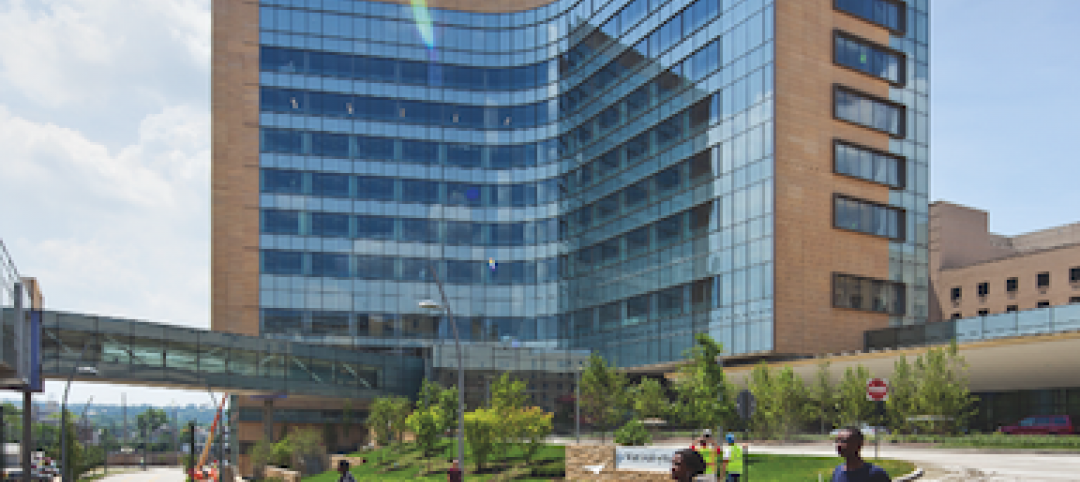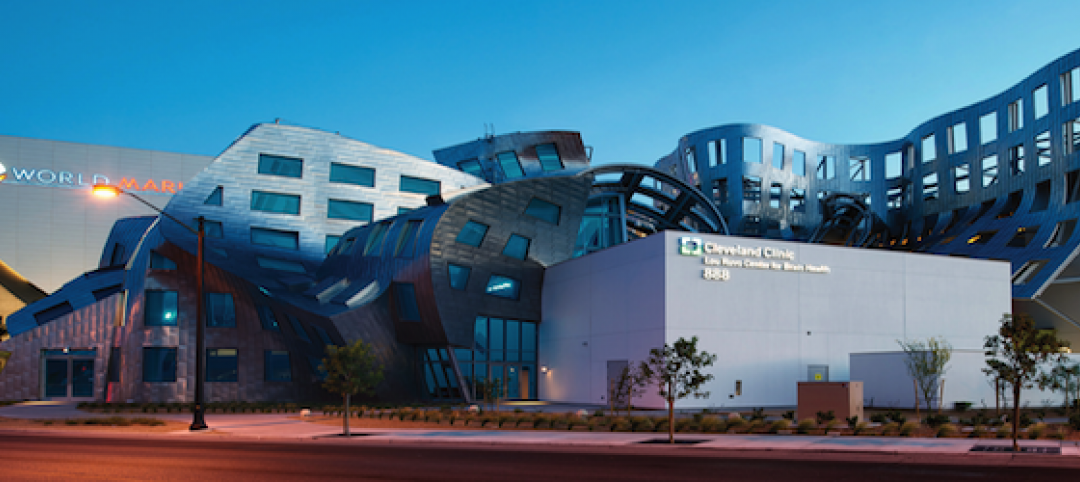Global architecture, design, and planning firm HLW has achieved the International Living Future Institute’s (ILFI) Just 2.0 Label.
According to an HLW news release, the firm is one of only 177 companies and one of the few architecture firms of its size and reach to obtain the label. The label was developed for organizations to evaluate themselves through a social justice and equity lens.
“The achievement recognizes HLW’s ongoing commitment to cultivating a people-first work environment that celebrates diversity, champions equity, and promotes inclusivity,” the release says. “A nearly two-year-long endeavor, HLW’s pursuit of the Just 2.0 Label establishes a framework for recentering the firm's culture around transparency, responsibility, and social justice.”
Initial certification surveys 22 key performance indicators across six categories:
- Diversity & Inclusion
- Equity
- Employee Health
- Employee Benefits
- Stewardship
- Purchasing & Supply Chain
Each indicator is broken down into a four-tier grading scale, which assesses where the organization falls after satisfying the baseline threshold.
Rather than self-selecting its benchmarks, HLW says it reported on all 22 indicators––in many cases, far surpassing the minimum requirements. Among its strongest categories: Gender Diversity, Engagement, Pay-Scale Equity, Physical Health, Training/Education, and Charitable Giving.
Here is the full press release on HLW achieving the Just 2.0 Label:
HLW is excited to announce our achievement of the International Living Future Institute’s (ILFI) Just 2.0 Label, becoming one of only 177 companies and one of the few architecture firms of our size and reach to obtain the label. Developed as a way for organizations to evaluate themselves through a social justice and equity lens for the betterment and sustainability of people, product, and the planet, the achievement recognizes HLW’s ongoing commitment to cultivating a people-first work environment that celebrates diversity, champions equity, and promotes inclusivity.
“Over the last few years, we have spent considerable time looking inward, reflecting on the focus of HLW’s practice and the environment we have cultivated here,” said Susan Boyle, Managing Partner. “As a practice, we are steadfast in the belief that we can drive change in our communities and make a meaningful impact on our world; aligning with the Just program has allowed us to advance that mission at greater depth.”
A nearly two-year-long endeavor, HLW’s pursuit of the Just 2.0 Label establishes a framework for recentering the firm’s culture around transparency, responsibility, and social justice. This effort was spearheaded by BEYOND, the firm’s internal sustainability, resilience, and building performance consultancy led by Global Director of Sustainability and Wellness Jonce Walker, in close collaboration with Project Manager Stephanie Haedrich. Serving as a nutrition label for the firm’s “performance” along a series of targeted metrics, the Just framework also provides a platform for continued introspection, evaluation, and improvement.
“We knew from the beginning that our pursuit of the Just 2.0 Label would define our organization for the future, from policies and practices to the expectations we have set and commitments we have made,” said Walker. “Empowered by HLW’s willingness to be transparent about often-times difficult subjects, we took great time and care in this process and have been humbled by our achievements.”
Initial certification surveys 22 key “performance indicators” across six categories, including: Diversity & Inclusion, Equity, Employee Health, Employee Benefits, Stewardship, and Purchasing & Supply Chain. Each indicator is broken down into a four-tier grading scale, which assesses where the organization falls once satisfying the baseline threshold. Rather than self-selecting its benchmarks, HLW reported on all 22 indicators––in many cases, far surpassing the minimum requirements. Among its strongest categories: Gender Diversity, Engagement, Pay-Scale Equity, Physical Health, Training/Education, and Charitable Giving.
The rubric also established measurable opportunities for performance improvement across a handful of indicators, reporting on which will be required as HLW commits to recertifying every two years. The firm has already made internal adjustments, using the framework to inform new initiatives and strategies, with more planned in the coming months under the purview of Anjali Mathai, Director of Diversity, Equity, and Inclusion at HLW.
“We could not be prouder of the considerable strides HLW has made in becoming a more transparent and just organization, and we are thrilled at the opportunity to highlight the hard work being done here; but this is only the beginning,” said Mathai. “We recognize the consideration, time, and effort that is required to sustain equity, particularly on a global scale, but we are committed to fostering a purpose and action-driven environment as we look to what’s next.”
Related Stories
| Oct 13, 2010
Editorial
The AEC industry shares a widespread obsession with the new. New is fresh. New is youthful. New is cool. But “old” or “slightly used” can be financially profitable and professionally rewarding, too.
| Oct 13, 2010
Test run on the HP Z200 SFF Good Value in a Small Package
Contributing Editor Jeff Yoders tests a new small-form factor, workstation-class desktop in Hewlett-Packard’s line that combines performance of its minitower machine with a smaller chassis and a lower price.
| Oct 13, 2010
Prefab Trailblazer
The $137 million, 12-story, 500,000-sf Miami Valley Hospital cardiac center, Dayton, Ohio, is the first major hospital project in the U.S. to have made extensive use of prefabricated components in its design and construction.
| Oct 13, 2010
Thought Leader
Sundra L. Ryce, President and CEO of SLR Contracting & Service Company, Buffalo, N.Y., talks about her firm’s success in new construction, renovation, CM, and design-build projects for the Navy, Air Force, and Buffalo Public Schools.
| Oct 13, 2010
Hospital tower gets modern makeover
The Wellmont Holston Valley Medical Center in Kingsport, Tenn., expanded its D unit, a project that includes a 243,443-sf addition with a 12-room operating suite, a 36-bed intensive care unit, and an enlarged emergency department.
| Oct 13, 2010
Modern office design accentuates skyline views
Intercontinental|Exchange, a Chicago-based financial firm, hired design/engineering firm Epstein to create a modern, new 31st-floor headquarters.
| Oct 13, 2010
Hospital and clinic join for better patient care
Designed by HGA Architects and Engineers, the two-story Owatonna (Minn.) Hospital, owned by Allina Hospitals and Clinics, connects to a newly expanded clinic owned by Mayo Health System to create a single facility for inpatient and outpatient care.
| Oct 13, 2010
Biloxi’s convention center bigger, better after Katrina
The Mississippi Coast Coliseum and Convention Center in Biloxi is once again open for business following a renovation and expansion necessitated by Hurricane Katrina.
| Oct 13, 2010
Tower commemorates Lewis & Clark’s historic expedition
The $4.8 million Lewis and Clark Confluence Tower in Hartford, Ill., commemorates explorers Meriwether Lewis and William Clark at the point where their trek to the Pacific Ocean began—the confluence of the Mississippi and Missouri Rivers.
| Oct 13, 2010
Maryland replacement hospital expands care, changes name
The new $120 million Meritus Regional Medical Center in Hagerstown, Md., has 267 beds, 17 operating rooms with high-resolution video screens, a special care level II nursery, and an emergency room with 53 treatment rooms, two trauma rooms, and two cardiac rooms.
















